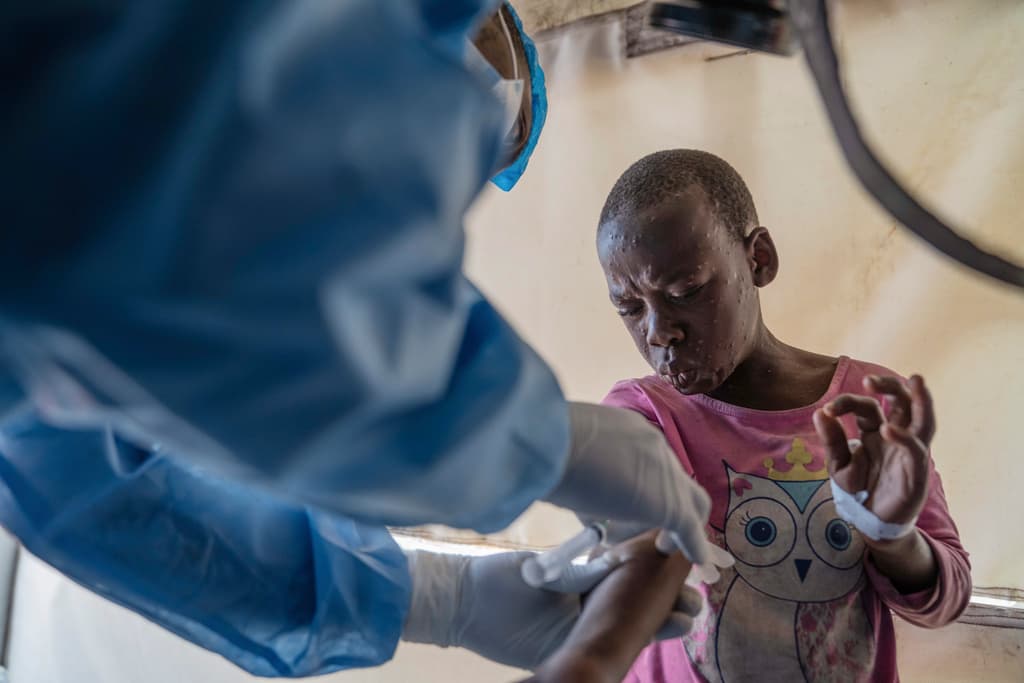The vaccines needed to stop the outbreak of mpox in Africa are delayed. Several countries, including Japan, the USA, and France, are ready to donate vaccines.
The EU, through Hera, the EU Commission's authority for preparedness and response to health crises, will deliver 215,000 vaccine doses to the Democratic Republic of the Congo, which has 90 percent of the cases.
However, no vaccines have yet reached the conflict-affected eastern Democratic Republic of the Congo, confirms Lindis Hurum, coordinator for Doctors Without Borders' operations in the region.
There are many processes underway, but we still haven't received any vaccines. Not even those working on the front line to receive the sick have been vaccinated, she says.
At the earliest next week
The first deliveries are expected to arrive at the earliest next week, announces the Africa Centres for Disease Control and Prevention (CDC), which is coordinating the distribution of mpox vaccines in Africa. According to the WHO, there is a need for 10 million doses in Africa alone, but currently, only a fraction is available.
A collaboration with the Danish pharmaceutical company Bavaria Nordic, which manufactures the only approved mpox vaccine, is said to be able to generate two million vaccine doses before the end of the year – and an additional eight million doses in 2025.
However, Hurum, who was on site in eastern Democratic Republic of the Congo during the Ebola outbreak in 2018–2020, says that enormous challenges remain – even if the vaccine is delivered.
It will not be possible to vaccinate the entire Congolese population. We still do not know where the epidemic is worst and where we should allocate the most resources, she says.
Seven million on the run
Years of conflict in eastern Democratic Republic of the Congo have driven nearly seven million people to flee. Over one million people live in informal refugee camps on the outskirts of the city of Goma. Many sleep directly on the ground with only a plastic sheet over them, Hurum reports.
Stopping the spread of infection in the camps is impossible. Those who live there have neither soap nor water, nor sufficient space to keep a distance, she says.
Getting vaccine doses to conflict-affected areas is both a security risk and a logistical challenge, Hurum reports. Poor roads mean that vaccines sometimes have to be transported by motorcycle.
At the same time, it's important to remember that it's not mpox that kills the most, but ordinary diseases like cholera, measles, malaria, and complications related to childbirth, Hurum says.






